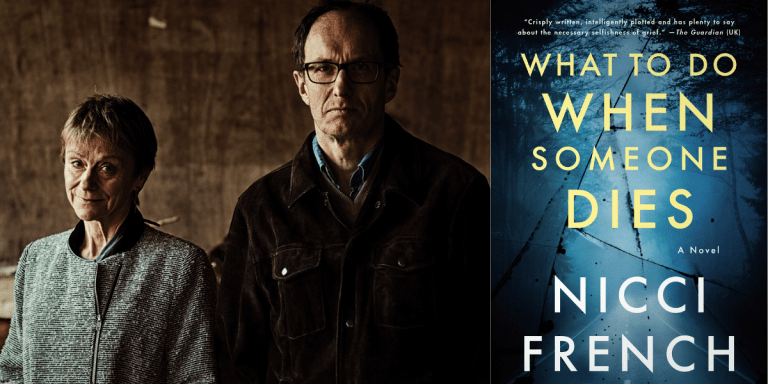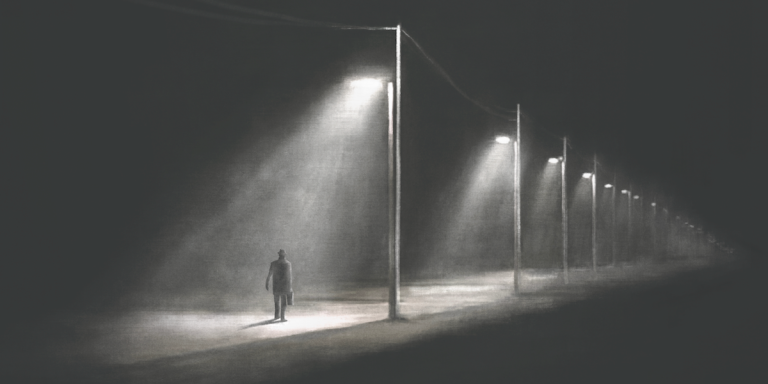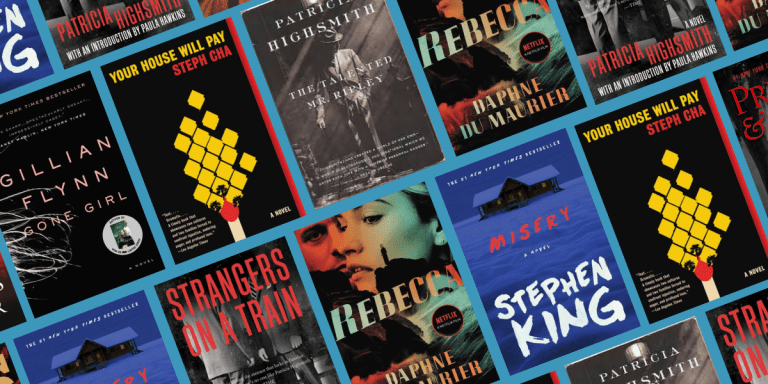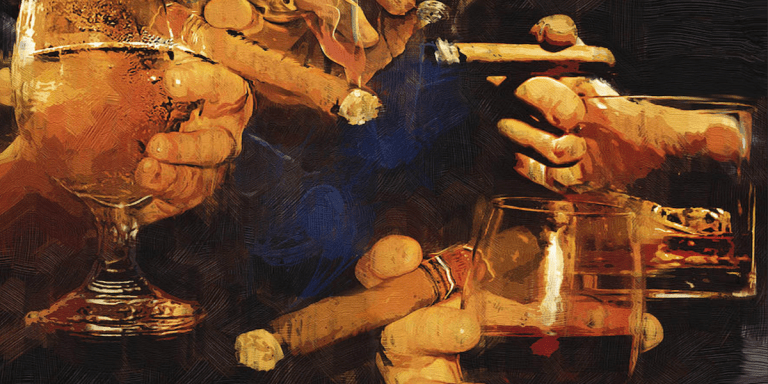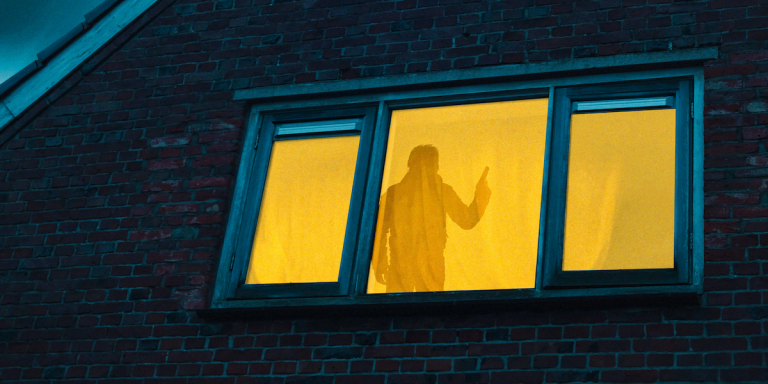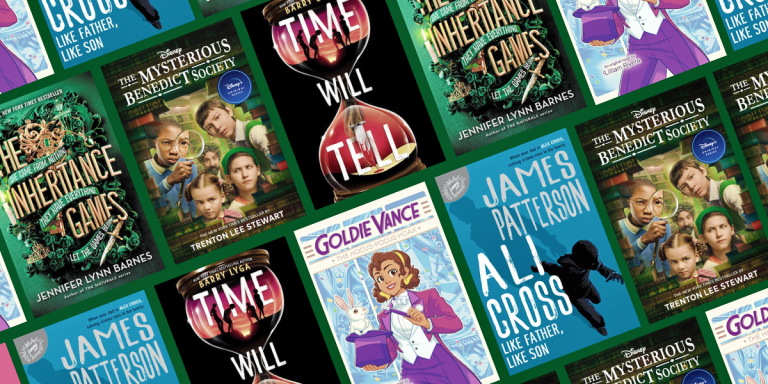Read the Excerpt: In My Dreams I Hold a Knife by Ashley Winstead
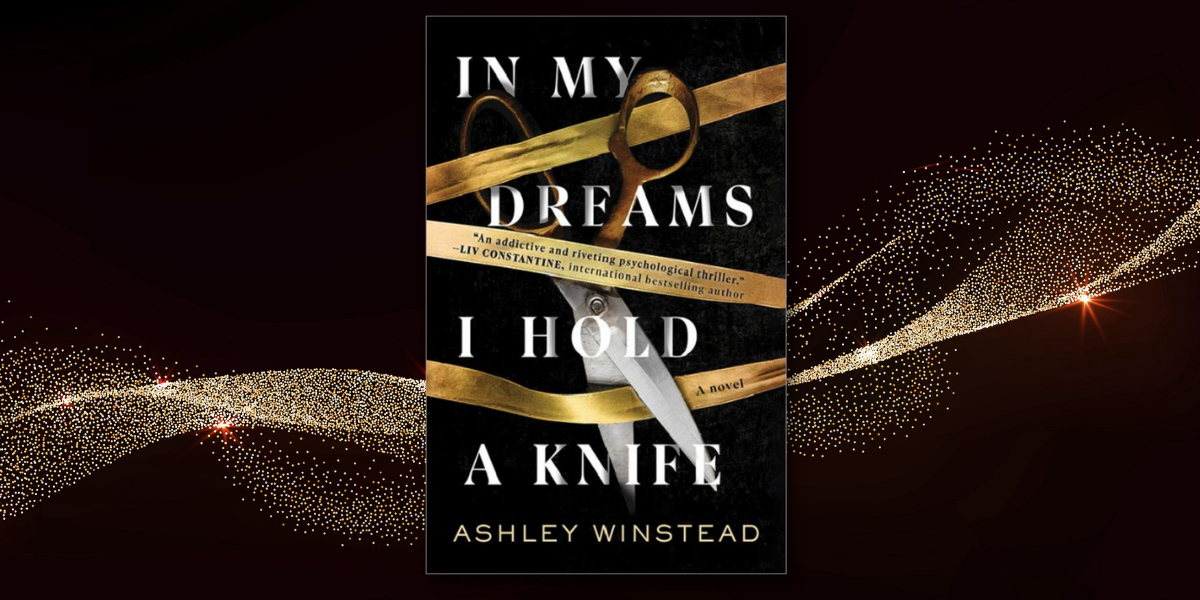 Chapter 3
Chapter 3
August, freshman year
The day I moved into Duquette, all I could think about was the fourth grade. We’d moved to Norfolk from Bedford over the summer, so I’d entered fourth grade at a new school, desperately shy. I barely talked to anyone, kept my eyes on my feet and the linoleum floor. Miraculously, my teacher saw something in me and suggested I take the gifted test. I scored high enough to get in, and all of a sudden, everything changed. I was given books to read at the ninth-grade level. Math test after math test came back with big, fat 100s scrawled in red marker. I felt as if a radioactive spider had bitten me and infused me with boldness, like a superpower. I started looking up from the floor to people’s faces when they spoke to me, because for the first time, I felt I might be worth the attention.
Fourth grade promised to be the best year of my life. I loved my teacher, Mrs. Rush, a short, blustery woman who swept around the classroom, calling out compliments and ruffling students’ hair. The day of our big field trip to the tide pools, I’d gotten permission to go to the bathroom to change into galoshes before we lined up for the bus. I’d studied the animals that lived in tide pools every day after school and had begged my mother to buy me galoshes so I could wade in and show everyone what I’d learned. Like an expert. A gifted student.
But when I arrived back at the classroom, it was empty. The class had left without me. After thirty minutes of waiting for them to realize their mistake, I made my way to the front office. There I sat, for the rest of the day, in an uncomfortable plastic chair. Trying—and failing—to keep myself from crying. For hours, my throat ached.
Mrs. Rush finally appeared in the office near the end of the day. She walked straight to the receptionist and said, “I counted my kids and you’re right, I only have thirty-one. But I’ve racked my brain and can’t for the life of me think who I forgot.”
The words cleaved me in half. Mrs. Rush, my favorite teacher—the one I felt surely saw me, recognized I was special—couldn’t remember I existed. The receptionist gave a small nod in my direction, whispering, “Jessica Miller has been waiting here for hours.” Mrs. Rush spun and pressed her hands to her face. “Of course—Jessica M. There are just so many Jessicas to keep track of. I’m very sorry.”
I let her hug me, ruffle my hair, but I never forgot it. I never forgave her. Most of all, I never absolved myself of the sin of being so utterly forgettable.
It was this tide-pool memory that haunted me on Freshman Move-In Day. Move-In was supposed to be thrilling, a Big Moment marking the transition from childhood to adult life. But all I could think about was that empty classroom, the excitement spiraling into disbelief, then pain. My stomach was a pit of butterflies—and underneath, a thread of something darker.
What was I so afraid of?
The four-and-a-half-hour drive from Norfolk to Winston-Salem felt like a week, thanks to my dad’s desire to turn off the radio and talk a mile a minute. First about college and then about anything and everything that popped into his head. This was something new I was still getting used to—a version of my dad who participated. Hell, who spoke. When I was younger, I would’ve given anything to have a conversation with him, have him take interest in me. But by now, through all our ups and downs, it just felt wrong, like an imposter living inside my dad’s skin. The energy with which he pointed out the window and twisted in his seat to ask me questions was too much. Unsustainable. There was no way this upswing could last.
By the time we finally circled downtown Winston-Salem and made our way to the outskirts, where Duquette University sat tucked away like a secret, my mother’s knuckles were white against the steering wheel. She’d stopped trying to turn on the radio hours ago and instead drove silently, letting my dad talk and talk.
We took a left, and finally, there it was: the larger-than-life stone arch marking the entrance to Duquette. Just like in the brochures. The butterflies beat their wings. I clutched my stomach in the back seat.
“Well, that does impart a sense of grandeur, doesn’t it,” said my dad approvingly. Even my mom took her eyes off the road long enough to shoot me an impressed look.
We glided under the arch and onto campus, driving slowly. Duquette was more than grand. Blackwell Tower, home to the chancellor’s office, was modeled after the Notre-Dame cathedral in Paris, single spire piercing the sky in a lethal spike, buttresses creeping out the sides like spindly spider legs. In the blazing glory of late August, rows of red crepe myrtles formed a sea of crimson everywhere, the ocean of color interrupted only by gnarled magnolia trees, twisted arms reaching out with scattered white blooms, clinging late into their season. Crimson and white. Blood and spirit, like the Duquette motto: Mutantur nos et vos, corpus et animam meam. We will change you, body and soul.
I was ready to be changed.
I shifted to see past the large crack in the windshield, left over from Dad’s incident. It had been months now, but we still didn’t have the money to replace the windshield, so we’d all learned to lean a little to the left.
“There it is,” I breathed. “East House.”
Although Blackwell Tower and the Dupont Observatory were the most iconic buildings on campus, I’d fallen hard and fast for East House. It was a modest-sized dormitory nearly covered, root to roof, with thick, green ivy. Though it was one of six halls reserved for freshmen, it was the only one that looked like a castle from a storybook, or a house out of The Secret Garden. Carved above the front door were the words “The sun rises in the east.”
This beautiful building—this imposing campus—was my life now. I’d earned Duquette, been selected out of thousands competing to go to U.S. News & World Report’s sixteenth-best college in the country. It may not have been what I’d originally longed for, or what my father expected—it was no Harvard—but it could be the start of something good. A new life. I could be a different person, starting now.
It wasn’t until my mom parked that I fully registered the circus of people around us. The dark thread of worry resurfaced.
“Well,” said my dad, unbuckling, “guess this is it. Time to see how knockoff Crimson Campus stands up to the real deal.” He reached for the door.
“Wait—” All I could think about was what he’d insisted on wearing: his Harvard alumni shirt. For the first time in my life, seeing it brought shame instead of desire. What would all these people—these Duquette students—think? Surely, they would understand the message my father was sending, not just to me anymore, but to all of them.
My mother gave me a sharp look, as always, finely attuned to conflict. “What’s wrong?”
I looked back and forth between them. My parents. Both here, though neither wanted to be, for vastly different reasons. It would only take two days, and then they’d strap themselves back into this car and make the return pilgrimage to Norfolk, to do who knows what in their empty house. I could stand it.
“Nothing,” I said, leaning back in my seat. “Let’s start with the trunk.”
***
My parents ended up leaving earlier than expected, but not before my mother got choked up during a tour of campus—It was just so expensive; didn’t I realize what I was getting myself into?—and my dad declared the campus pretty, but nowhere near as impressive as Cambridge. And oh, here’s an idea, what if I waited a semester and applied again to Harvard as a transfer student? I would never have to tell anyone I’d spent a semester in North Carolina.
After all that, and the hard work of cramming my stuff into the small, cinder-block dorm room, I thought I’d be relieved to see them go. But as soon as I was alone, I bawled like a baby. With a roommate—especially mine, Rachel, who was eerily silent and shot me anxious looks every time I breathed too loud—I had to lie under my comforter to hide my sobs.
College was not what I’d expected. All the other freshmen seemed to become best friends instantly. They were having the time of their lives. In the afternoons I walked down the hall with my head ducked, listening to conversations in doorways about all-night frat parties and hangovers so bad they had to skip 8:00 a.m. classes. In a flash, I was nine years old again, walking into that classroom and finding no one. It was like being invisible. Nothing had changed.
One night I woke at 3:00 a.m. and shuffled to the bathroom, catching two girls stumbling back to their room, actually crying with laughter. They were clearly drunk, but they were also glamorous, in miniskirts and bright lipstick. I’d noticed them before. They were both blond, and one was the most beautiful girl I’d ever seen. Her hair was so glossy. Ever since I’d first spotted her, I’d spent nights wondering what shampoo she used, or if it was just genetics. It was a strange feeling to admire her so intensely from afar, like being half in love.
The other girl was pretty, if you were being generous, but more importantly she seemed wholly at ease in her own skin. She looked people in the eyes and spoke in a loud voice and acted like the universe revolved around her. Which, by the way the beautiful girl clung to her arm, it might. As I watched them together, the ache inside me sharpened to a knifepoint.
The next day was the freshman honor code ceremony, where we all had to sign our names on a contract pledging not to plagiarize. Everyone in our hall, even my roommate, who never opened her mouth to say anything, complained about having to go. It was a bit annoying to put on heels and a dress, but I was secretly grateful to be doing something with the whole freshman class, like we all belonged equally. It felt nice to move in a herd from the dorms to Eliot Lawn.
On the way back from the ceremony, the first hints of dusk darkened the summer sky. Someone bumped my elbow, and I turned, apologizing.
“Hey,” said the girl, dark eyes lighting up. “You’re in my dorm, right? East House, fourth floor?”
“I am.” I almost reached out for a handshake, then thought better of it. Too formal. Too weird. “Jessica Miller.”
“Caroline Rodriguez.” She shook out her long, brown hair, which I noticed was almost as glossy as the mystery blond’s. “You live with that mute girl, huh?”
The laugh cracked out of me before I could help it. “She’s not actually mute, but yeah. Rachel. She pretty much never talks. Or leaves the room.”
Caroline rolled her eyes. “That’s a nightmare. I have an über-nerd roommate too. Don’t tell her I said that if you meet her. Her name is literally Eustice. I don’t know how Duquette’s algorithm matched us.”
“It’s a pretty simple algorithm, actually.” I was enjoying walking side by side with Caroline and wanted to stretch it out as long as possible. “I researched it, and it’s just a bunch of weights assigned to different answers and plugged into a formula. Not very sophisticated.”
Caroline stopped walking. “What are you, good at math?” The way she said it sounded like an accusation.
I stopped too. “I guess. I mean, I’m not a savant or anything. Just regular good. I mean, probably good. Normal.” The truth was, I’d taken hours of extra math classes at the community college back home, trying to build a résumé that would get me accepted into Harvard’s economics program, like my father before me. But I had an instinct revealing this tidbit might convince Caroline to stop talking to me.
“Well, even with my roommate, I’m glad I got put in East House and not Donahue, or Chapman Hall.” Caroline’s nose wrinkled. “I heard people steal your laundry right out of the dryer in Chapman.”
She laughed at my scandalized expression. Caroline was small and olive-skinned and pretty, and she laughed with her whole body. She pointed to one of the wrought-iron picnic benches in the middle of the quad. Groups of students sat there every night, hanging out and smoking weed you could smell with your window open. “Want to chill for a sec? I’m not dying to get back to Eustice. She says she wants to give me a Klingon name so we can be Klingon warrior sisters, whatever that means.”
“You don’t know Star Trek?”
Caroline gave me a blank look.
“The TV show?”
We walked to the table and sat on the bench, still warm from a day’s worth of sunshine. Other freshmen walking past gave us interested looks. I tried to imagine what they saw: two pretty girls in sundresses, best friends maybe, waiting for the rest of our friends to arrive. I sat up straighter and smoothed my hem.
“This is going to make me sound weird,” Caroline said, “but my parents didn’t let me watch TV or movies growing up.” She reached for the necklace resting on her collarbone—a delicate gold cross—and rolled it between her fingers. “Our pastor said it was a bad influence. Of course, that didn’t stop my mom from inhaling telenovelas. Only I had to suffer. I swear, the first night after my parents left Duquette, I binged the entire first season of Dawson’s Creek. Just ate it up. I wanted to watch that show so bad when I was twelve.”
“And? Verdict?”
“Not worth the six years I spent pining.” We laughed; then something caught her attention, and she waved over my shoulder. “Heather! Over here!”
I spun, trying to keep my face neutral so no one could see how disappointed I was that Caroline was already moving on to someone else. Then I spotted who she was waving at. The confident blond from my floor stomped through the grass in our direction.
“Caro! Was that a snoozefest, or what? God only knows why we had to sign that in person instead of through email, like we’re actually living in the twenty-first century.” This close, I could see a light dusting of freckles across the girl’s nose, and I realized her forehead was several sizes too big. It was what threw off the symmetry of her face, kept her from being truly pretty. But her navy dress—it was dense material, beautifully tailored. It screamed money. I longed to reach out and touch it.
The girl turned to me and stuck out her hand. “I don’t know you yet. I’m Heather Shelby.”
“Jessica Miller.” Her handshake was very firm.
“How do you know Caro?”
Caro. The nickname rolled off her tongue, easy and intimate. “We just met. We live in the same dorm.”
Heather blinked. Then she surprised me by dropping onto the bench. “Shit. That means you’re in East House, too.”
I nodded and tried hard not to care that Heather had passed me in the hallway a hundred times before, yet clearly I hadn’t registered. It’s because you don’t stand out, whispered that insidious voice.
“Ohhh,” Heather said, something dawning on her. “Wait, you’re roommates with that, like, nun who took a vow of silence, right?”
How had Rachel made more of an impression than me?
Caro leaned in, and Heather and I instinctively drew closer. “Don’t look now,” she whispered, “but there’s this guy in our dorm who is, like, the epitome of everything my mother warned me about, and he’s walking by right now. I said, Don’t look,” she hissed as both Heather and I turned.
It was easy to tell who she was talking about. He was the one person in a sea of skirts and blazers who hadn’t dressed up. Instead, he wore black boots and a T-shirt with the collar hanging loose, a colorful tattoo half-hidden by his sleeve. He was tall and lanky, with a shock of dark hair so thick it made him taller. There was something about his face—the cut of his jaw, the fullness of his lips. I shivered.
“My mom would take one look at him and faint,” Caro said.
As if he could feel us staring, the boy turned sharply, his eyes landing on me. My mouth turned dry. His eyes were a light color, though I couldn’t tell which at this distance. A small smile curled his lips.
“He’s hot,” Heather said, speaking at an alarmingly normal volume. “In a one-time, get-the-bad-boy-out-of-your-system kind of way. I’ve moved on to nice boys. But every girl has to go through it. Rite of passage.”
“Am I crazy, or is he walking over here?” I whispered, heart hammering.
“He is definitely coming closer,” Caro confirmed.
The boy came over and stopped, resting one of his black boots on the bench. “Hi,” he said, turning a little to include Caro and Heather. As soon as his eyes left my face, I felt a rush of relief, mingled with disappointment. “You guys feeling honorable, after swearing your oaths and everything?”
“Not particularly,” Heather said.
“Excellent.” He dropped into a seat on the other side of the table and pulled something out of his pocket. “In that case, want to smoke?”
He held out a joint.
I almost toppled off the bench. “Out in the open?”
He grinned at me, and I had the sudden feeling this was what he’d walked over for, to bait me into talking to him. I made the mistake of looking at his eyes, which I could now see were green as summer grass.
“What, you don’t take risks?” He was still grinning in that way that made it seem like he was responding to a second, secret conversation, one I couldn’t yet follow.
“I’ll take the risk,” Heather said. “As long as it’s good weed. Nothing skunky, please—life’s too short.”
“None for me,” Caro said, fingering her cross.
The boy stuck the joint in his mouth, pulled out a lighter, and flicked up a flame, sucking in a breath. Effortless. He ran a hand through his hair, and it remained lifted high on his head, long after his hand dropped back to the table. He took another drag and passed the joint to me.
I shook my head, the movement slight. He smiled a small, knowing smile and held the joint out to Heather, who took it immediately.
His eyes found me again. “Brandon Cooper. East House, floor three.”
“Jessica Miller.” I pressed sweaty hands against my dress. “On four.”
“I know.” He reached into his pocket, digging for something. When he pulled his hand out, he held a small piece of paper.
“I got this for you.”
It was a fortune from a fortune cookie. I picked it up and gaped at him. “What? Why?”
“I’ve seen you around. I got this and thought of you. I was going to tape it to your door, but here you are.”
My blank stare was broken by a loud voice calling from across the lawn. “Coop, dude, are you smoking in the middle of the quad again?”
The four of us turned in unison, like windup toys. Three boys ambled in our direction, led by the one in the middle, who was grinning like he’d stumbled on the funniest thing in the world.
It was hard to keep my mouth from dropping open. All three boys were attractive, but the leader in the middle was easily the most beautiful boy I’d ever seen. He was golden—there was no other way to describe it. His skin, light gold, his hair, dark gold, his eyes so crystal-blue they were startling. His teeth were perfectly straight and white—unreal teeth, the kind no human actually possessed. He wore a navy blazer with a crest sewn into it and matching navy slacks.
Caro leaned in close and whispered, “I think we just fell into an Abercrombie catalog.”
The three boys stood in front of us, brimming with good humor.
“You’ve got brass balls, Cooper,” said the massive guy standing to the prince’s left. He had a shaved head and bronze skin, tall and broad, his chest and shoulders thick with muscle, stuffed into an ill-fitting jacket. He held his body stiffly, in a way that screamed athlete. He darted a glance to the prince after he spoke, seeking approval.
Coop shrugged. “If I get kicked out, that’s one less bill to worry about.” He took the joint back and held it up. “Interested?”
Inside, panic swelled. I’d never heard anyone talk openly about bills, as if not having money was simply a fact of life. As if there wasn’t shame in it, and you weren’t broadcasting to everyone that you were a small and unimportant person. I felt a sudden, irrational terror they’d turn to me next, make me talk about my family’s bills.
“You kidding?” The big guy crossed his arms and shook his head. “I’m on the football team. My dad would kill me if he knew I was standing this close to you.”
“Speaking of which,” Coop said, smiling slyly around the joint, “I heard your dad yelling at you during Move-In. Man’s scary-invested in your college football career. I’m worried he’s going to come back in the middle of the night, cut your face off, and wear it around campus, pretending to be you.”
“Fuck off.”
“Give it here,” said the prince, waving at the joint. “Roommates ought to rise and fall together.” He dropped next to Coop and took the joint, tilting his head back to the sky.
“My name’s Jack Carroll,” the last boy said politely, holding out his hand. If Coop would’ve had Caro’s mother reaching for the holy water, Jack was the boy she would have chosen out of a catalog. His hair was brushed neatly to the side, cardigan perfectly pressed, tie straight as a pin. He looked like an eighteen-year-old Mr. Rogers.
We each shook Jack’s hand, and he folded himself onto the bench, carefully brushing his slacks.
“Jack’s an Eagle Scout,” the prince said. “If you couldn’t tell just by looking at him.”
“And Mint’s heir to a real estate empire,” Jack countered, loosening his tie with one hand. “If you couldn’t tell by his sense of entitlement.”
“Mark Minter,” the prince said, once he’d blown a ring of smoke. He nodded in the direction of the big guy. “And that’s Francis Kekoa, Duquette’s newest football star. Pride of Oahu, according to his dad.”
“Frankie,” the boy said quickly, heaving himself onto the bench next to Mint. “No one calls me Francis except my mom.”
“Frankie lets me, though.” Mint sucked deeply, then passed the joint back to Coop. “Because he loves me.”
Frankie rolled his eyes, then nodded in Caro’s direction. “I like your necklace. Got one just like it.” He dug under the collar of his shirt and drew out a thick gold chain, carrying a heavy cross. “Us Catholics gotta represent.”
“Just because I’m Colombian doesn’t automatically make me a Catholic,” Caro snapped, dropping her necklace and folding her hands. “I’m Presbyterian.”
Coop laughed, coughing on smoke. “Good one, Frankie.”
“Sorry,” Frankie said. “I got excited to share my Catholic guilt with someone.”
“Where in Colombia?” Mint asked Caro.
“I have family in Bogotá.” The word rolled crisply off her tongue, with a punch at the end. “My parents and I are from Miami.”
He nodded. “I’ve visited Colombia a bunch. Lots of people summering in Cartagena lately.”
“Summering.” The word withered in Coop’s mouth.
“If we’re jumping into families and religion,” Jack said, “then my parents are at that really fun stage of Southern Baptism where they’ve ceased being human beings and have transformed into walking, talking bibles. So it was fun showing them around campus and stumbling on Greek row.” He took the joint and squinted at Mint. “Let me guess: Methodist. That’s what rich kids always are.”
Mint snorted. “The only religion my parents worship is money.”
We laughed. Dusk deepened, the sun a rich orange-rose, sinking through the branches of the trees. A warm breeze kissed my skin. I pictured it circling the picnic table, touching all of us, drawing us closer.
“What about you, Coop?” Mint asked. “We haven’t even had the family conversation yet.”
Coop looked down at the table. “My family is one person. And she’s an atheist. We don’t believe in believing.”
Frankie snorted. “How metal.” He nodded at Heather. “What’s your deal?”
With all eyes on her, Heather smiled like the cat that ate the canary. “My parents worship the one true god.” She spoke slowly, basking in our attention. “Me.” Her eyes lingered on Jack. “You should try it sometime.”
Jack turned bright red as the whole table burst into amazed laughter. Frankie and Mint shared an incredulous look, and then suddenly Mint turned across the table and grinned at me. I sucked in a breath. The world’s most beautiful boy, a foot away, and he was smiling at me, sharing a joke. The miraculousness of it did something to me. Confidence sang through my blood.
“Now there’s a pair of brass balls,” I said, and the whole table rocked with laughter, even Heather. Mint gave me an appreciative look.
I was addicted. This was all I wanted—to make these people laugh and have Mint look at me just like that, his skin glowing in the setting sun.
“Your turn.” Caro elbowed me. “How’d you grow up?”
My smile dimmed. My parents weren’t religious, but they each had their devotions. My dad’s life was a shrine built to everything I’d struggled with. He’d never said it out loud, but I knew what he believed: if you couldn’t be the best, be the winner, life wasn’t worth living, and you had to find some way to escape. He’d found a very effective way, once life started disappointing him. My mom, on the other hand, was simple. She devoted herself to anything my dad thought wasn’t worth our time. She worshipped settling, he would say. A constant tension.
How could I possibly explain that?
I cleared my throat. “Why are we spending a Friday night talking about religion like a bunch of nerd theology majors? Here’s what I want to know: where are we going tonight?”
“Hell yeah.” Frankie pounded the table. “Phi Delt Anything-But-Clothes party.” He gestured between himself, Jack, and Mint. “We got invites from one of the brothers.”
The table broke out into a heated discussion about how to fashion clothes out of trash bags and how early we should start drinking in East House before walking to frat row. I leaned back and watched. All around us, fireflies dotted the air, sparks of light, here and gone. Tree branches swayed and stalks of grass lifted with the breeze, in time to some secret song. I could feel it, humming and weaving around us, the lawn and the trees and the brilliant dying sun. Knitting us together.
It was magic. Each of them a star on earth, pulling me in with the force of their gravity. I was theirs. In that moment, I gave myself over completely. I worshipped them. I died and started new, right there in the grass, in the center of the lawn.
The next day, rolling awake in bed, trash-bag dress sticking to my legs, I finally opened Coop’s fortune. Seven strange words: Today, something starts that will never end.
I taped the fortune to my door. I thought I knew what it meant. But I was young, and so naive. I had no idea what was barreling toward us, just around the corner.
Excerpted from In My Dreams I Hold A Knife by Ashley Winstead. © 2021 by Ashley Winstead. Used with permission of the publisher, Sourcebooks, Inc. All rights reserved.
Order The Book
Ten years after graduation, Jessica Miller has planned her triumphant return to her southern, elite Duquette University, down to the envious whispers that are sure to follow in her wake. Everyone is going to see the girl she wants them to see—confident, beautiful, indifferent. Not the girl she was when she left campus, back when Heather Shelby's murder fractured everything, including the tight bond linking the six friends she'd been closest to since freshman year.
But not everyone is ready to move on. Not everyone left Duquette ten years ago, and not everyone can let Heather's murder go unsolved. Someone is determined to trap the real killer, to make the guilty pay. When the six friends are reunited, they will be forced to confront what happened that night—and the years' worth of secrets each of them would do anything to keep hidden.
By clicking 'Sign Up,' I acknowledge that I have read and agree to Hachette Book Group’s Privacy Policy and Terms of Use
What to Read Next
